Kidney Infection is a condition where inflammation damages the interstitial tissue of the kidneys and cells of the renal tubules. Kidney infection, if left untreated or poorly treated, can lead to irreversible kidney damage and, consequently, to their failure.
The kidneys![]() are two organs situated in the retroperitoneal space of the abdominal cavity. They are part of the urinary system. However, their functions are not limited to urine production. The kidneys are vital for maintaining balance in the body. It happens through the process of homeostasis. They also participate in the production and deactivation of certain hormones.
are two organs situated in the retroperitoneal space of the abdominal cavity. They are part of the urinary system. However, their functions are not limited to urine production. The kidneys are vital for maintaining balance in the body. It happens through the process of homeostasis. They also participate in the production and deactivation of certain hormones.
The kidneys are situated on either side of the spine. The left one is usually located higher than the right kidney.
The basic structural units of the kidney are nephrons, in which the renal corpuscle (glomerulus, Bowman's capsule) and renal tubule (proximal tubule, loop of Henle, and distal tubule) are distinguished. In the glomerulus, there is an arterio-arterial network surrounded by the Bowman's capsule. The pressure difference in the arterio-arterial network leads to the seepage of fluid, called primary urine, into the Bowman's capsule.
Then, in the proximal tubule, there is an obligatory absorption of the components necessary for the body, which were found in the primary urine. In the next stage, which takes place in the loop of Henle, urine concentration takes place, followed by urine dilution. The distal convoluted tubule is responsible for facultative resorption, depending on the current needs of the organism.
This is how urine is produced. In addition to water, the liquid contains sodium, hydrogen, and potassium ions. It also has urea, uric acid, bilirubin, and other metabolic waste products.
Other kidney functions![]() include:
include:
Kidney pain![]() is pain located in the abdomen, on both sides of the spine, in the lumbar region – where the kidneys are.
is pain located in the abdomen, on both sides of the spine, in the lumbar region – where the kidneys are.
Pain intensity varies. Kidney pain can come on very suddenly and worsen over the next few hours or days (this is acute kidney pain, also often referred to as kidney colic). It can also last for weeks or even years, appearing only in certain situations and not causing much discomfort.
The type of pain – and its cause – is always determined by the doctor based on the symptoms and test results.
The most common cause of kidney pain is kidney inflammation, which leads to the infection of this organ.
One possible cause of acute pyelonephritis![]() is infection with:
is infection with:
Acute pyelonephritis![]() can also be the result of pathogenic microorganisms entering the kidneys through the blood.
can also be the result of pathogenic microorganisms entering the kidneys through the blood.
Chronic pyelonephritis![]() is caused by repeated occurrences of acute pyelonephritis. Additionally, it can occur due to an untreated or inadequately treated infection of the urethra or bladder. It is when bacteria that remain in the urinary tract travel through the ureter to the kidney and cause inflammation.
is caused by repeated occurrences of acute pyelonephritis. Additionally, it can occur due to an untreated or inadequately treated infection of the urethra or bladder. It is when bacteria that remain in the urinary tract travel through the ureter to the kidney and cause inflammation.
The risk factors![]() contributing to the disease are:
contributing to the disease are:
Kidney ailments can not only indicate infection – but also the development of other serious medical problems.
The most common kidney diseases![]() include:
include:
Developmental defects can include the absence of a kidney, the presence of an extra kidney (also known as a third kidney), or an abnormal kidney shape. Fortunately, having only one healthy kidney is sufficient for a person to function normally.
A greater risk is kidney failure![]() or other related conditions, such as:
or other related conditions, such as:
Treatment of kidney disease largely depends on its cause. If the source of kidney damage is known, it is necessary to strive to remove it (e.g., stop bleeding, get rid of the obstruction to urine outflow, or stop using nephrotoxic drugs). It is worth remembering about treatment that inhibits the progression of chronic kidney disease, treatment of comorbidities, prevention of complications, and nutritional diet.
In the acute form of the disease, the dominant symptom is a sudden, sharp pain in the lumbar region (one or two sides), which may radiate to the groin. In addition, symptoms![]() characteristic of inflammation of the lower urinary tract appear:
characteristic of inflammation of the lower urinary tract appear:
Some symptoms![]() known as dysuria include painful urination, frequent urges to urinate with a burning sensation, and blood in the urine.
known as dysuria include painful urination, frequent urges to urinate with a burning sensation, and blood in the urine.
The characteristic sign of kidney inflammation is the positive Goldflam's sign. The patient experiences severe pain when the doctor hits the lumbar region of the back. If the inflammation is the result of unresolved cystitis, the patient may also experience discomfort when pressing the suprapubic area.
The chronic form is oligosymptomatic or asymptomatic, up to the advanced stage of chronic renal failure.
If you do not treat chronic pyelonephritis it can lead to chronic kidney failure. Then it is necessary for renal replacement therapy (most often dialysis). In certain situations, a kidney transplant could be necessary. It can save your life. It's crucial to promptly treat a urinary tract infection to avoid the inflammation from extending to the kidneys.

First, in diagnosis![]() , a urine test is performed. Proteinuria and more or less severe hematuria are common. The increase in the number of white blood cells and bacteria in the urine is moderate. In blood tests, elevated CRP and ESR indicate inflammation. There is also leucocytosis and an increase in urea, which demonstrates kidney dysfunction. Simultaneous growth
, a urine test is performed. Proteinuria and more or less severe hematuria are common. The increase in the number of white blood cells and bacteria in the urine is moderate. In blood tests, elevated CRP and ESR indicate inflammation. There is also leucocytosis and an increase in urea, which demonstrates kidney dysfunction. Simultaneous growth
in creatinine levels may also indicate kidney damage.
In a patient with suspected pyelonephritis, an ultrasound examination is also performed, showing the kidneys (in the course of the disease, they are shrunken, and their surface is irregular due to many scarring of the interstitial tissue).
In rare cases, the doctor decides to perform a kidney biopsy.
Usually in treatment![]() , antibiotic therapy is used, which lasts about two weeks. First, the patient receives antibiotics most commonly used for urinary tract infections. The right ones are selected based on the results of the urine test. When choosing an antibiotic – consider the type of bacteria in the urine and its sensitivity to the drug. In addition, antipyretics and painkillers are recommended. During the illness, you should limit physical activity and take approximately 2 liters of fluids a day.
, antibiotic therapy is used, which lasts about two weeks. First, the patient receives antibiotics most commonly used for urinary tract infections. The right ones are selected based on the results of the urine test. When choosing an antibiotic – consider the type of bacteria in the urine and its sensitivity to the drug. In addition, antipyretics and painkillers are recommended. During the illness, you should limit physical activity and take approximately 2 liters of fluids a day.
Surgical treatment may be necessary if the disease is caused by urinary outflow disorders (e.g., in the course of kidney stones). It aims to insert a catheter into the bladder (so-called bladder catheterization) or the ureter through the urethra (so-called ureter probing) and even puncture of the kidney (when there was stagnation of urine in the kidney).
Taking treatment of kidney diseases too late or using incorrect forms of therapy can lead to severe health consequences, so you should not try to treat kidney infections with unproven methods. If you notice disturbing symptoms, it is worth visiting a nephrologist – an experienced specialist knows how to treat the kidneys and what types of therapy will give the best chance for a full recovery.
Kidneys are a significant organ in our body and neglecting them can result in serious health problems. It is worth taking care of the health of the kidneys, especially since the symptoms of their failure may not be felt for a long time, and when they appear, treatment is very challenging. Check out seven tips to help improve kidney health.
Drinking![]() the right amount of fluids is significant for keeping your kidneys healthy. It is worth remembering that optimal fluid intake depends, among others, on climate, physical activity, and health.
the right amount of fluids is significant for keeping your kidneys healthy. It is worth remembering that optimal fluid intake depends, among others, on climate, physical activity, and health.
Experts suggest consuming approximately 2 liters of fluids daily. The exception is dehydrating drinks – cola, energy drinks, or coffee – we do not include them in the balance of daily fluid consumption.
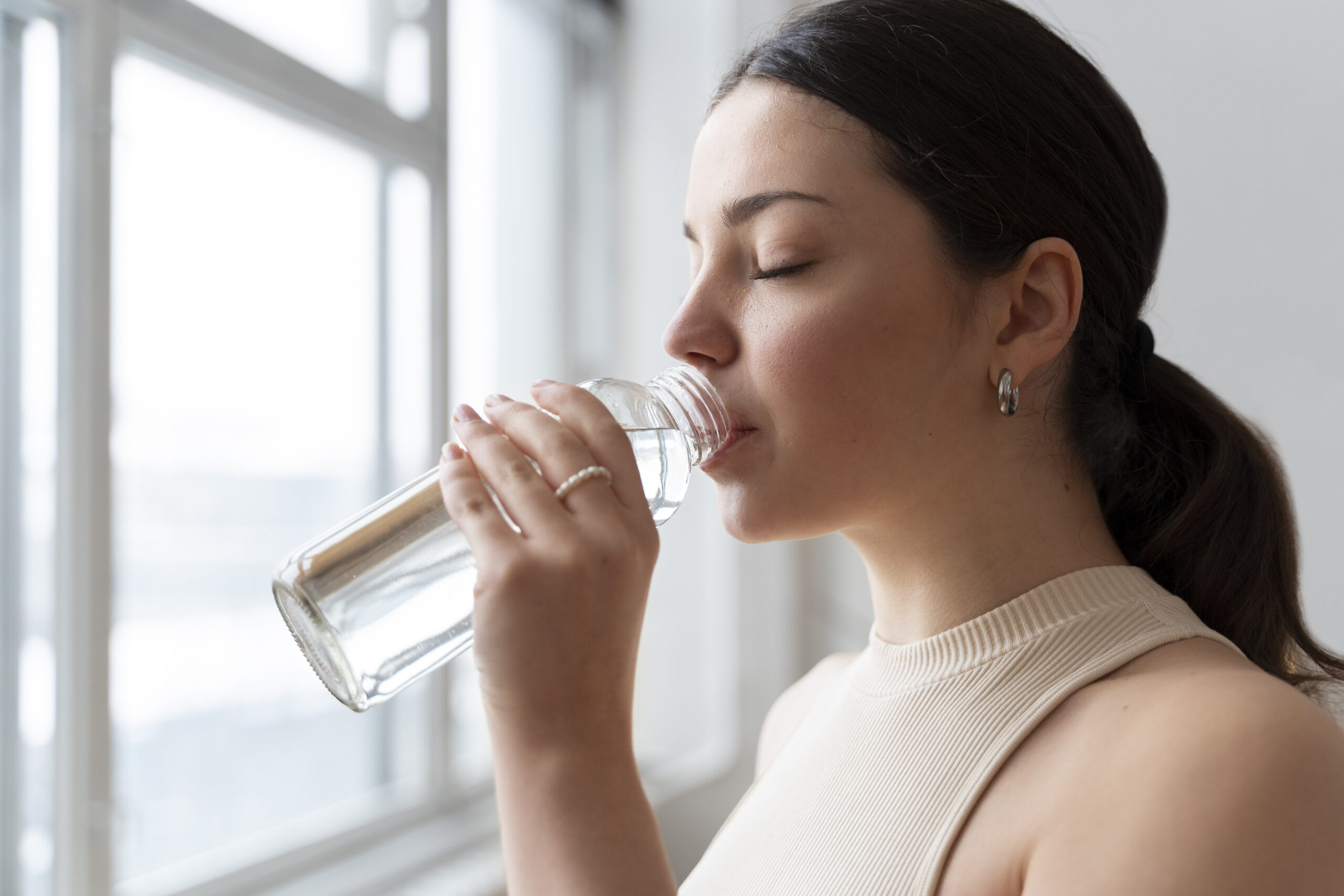
Eating healthy![]() has a beneficial impact on both the kidneys and overall bodily functions. Make sure to incorporate into your diet:
has a beneficial impact on both the kidneys and overall bodily functions. Make sure to incorporate into your diet:
Limit salt in favor of herbal mixtures (check the labels to see if they contain salt), bake more often than fry, limit sugar, give up trans fats, fast food.
To improve your blood pressure, consider making adjustments to your diet. Doing so can lower the risk of developing heart disease. It is also helpful in preventing diabetes.
Regular physical activity![]() – even 30 minutes a day – will positively affect the health of the kidneys and the whole body. Physical exercise is conducive to maintaining a healthy weight, supports the work of the heart, and regulates blood pressure. If so far you have chosen rather couch mode, start with walks and gradually introduce new activities. It is worth trying different things and checking which type of physical activity is the most suitable for us.
– even 30 minutes a day – will positively affect the health of the kidneys and the whole body. Physical exercise is conducive to maintaining a healthy weight, supports the work of the heart, and regulates blood pressure. If so far you have chosen rather couch mode, start with walks and gradually introduce new activities. It is worth trying different things and checking which type of physical activity is the most suitable for us.
Cigarette smoking![]() , including e-cigarettes, can harm blood vessels. In addition to affecting the kidneys, this can also impact blood circulation in other organs. Impaired blood flow prevents the kidneys from functioning at an optimal level. Smoking poses a heightened risk of developing high blood pressure and kidney cancer.
, including e-cigarettes, can harm blood vessels. In addition to affecting the kidneys, this can also impact blood circulation in other organs. Impaired blood flow prevents the kidneys from functioning at an optimal level. Smoking poses a heightened risk of developing high blood pressure and kidney cancer.
Drinking too much alcohol![]() can raise your blood pressure. It also adds unnecessary calories to your diet. If you drink alcohol, limit your consumption, and preferably stop drinking altogether. Excess alcohol causes changes in the functioning of the kidneys and reduces their filtration capacity. Regular heavy alcohol consumption can increase the risk of chronic kidney disease.
can raise your blood pressure. It also adds unnecessary calories to your diet. If you drink alcohol, limit your consumption, and preferably stop drinking altogether. Excess alcohol causes changes in the functioning of the kidneys and reduces their filtration capacity. Regular heavy alcohol consumption can increase the risk of chronic kidney disease.
Taking regular over-the-counter pills![]() can potentially harm your kidneys. It is in the case of non-steroidal anti-inflammatory drugs – if they are taken regularly for a long period. If your kidneys are healthy and you use these painkillers occasionally, this is not a threat. Always read the package description. And if in doubt, ask a specialist.
can potentially harm your kidneys. It is in the case of non-steroidal anti-inflammatory drugs – if they are taken regularly for a long period. If your kidneys are healthy and you use these painkillers occasionally, this is not a threat. Always read the package description. And if in doubt, ask a specialist.
If you belong to one or more risk groups for kidney disease, do not forget about regular examinations![]() . Start with a simple blood pressure measurement – especially important in those with a history of hypertension. Damage to the glomeruli in the kidneys can be caused by high blood pressure.
. Start with a simple blood pressure measurement – especially important in those with a history of hypertension. Damage to the glomeruli in the kidneys can be caused by high blood pressure.
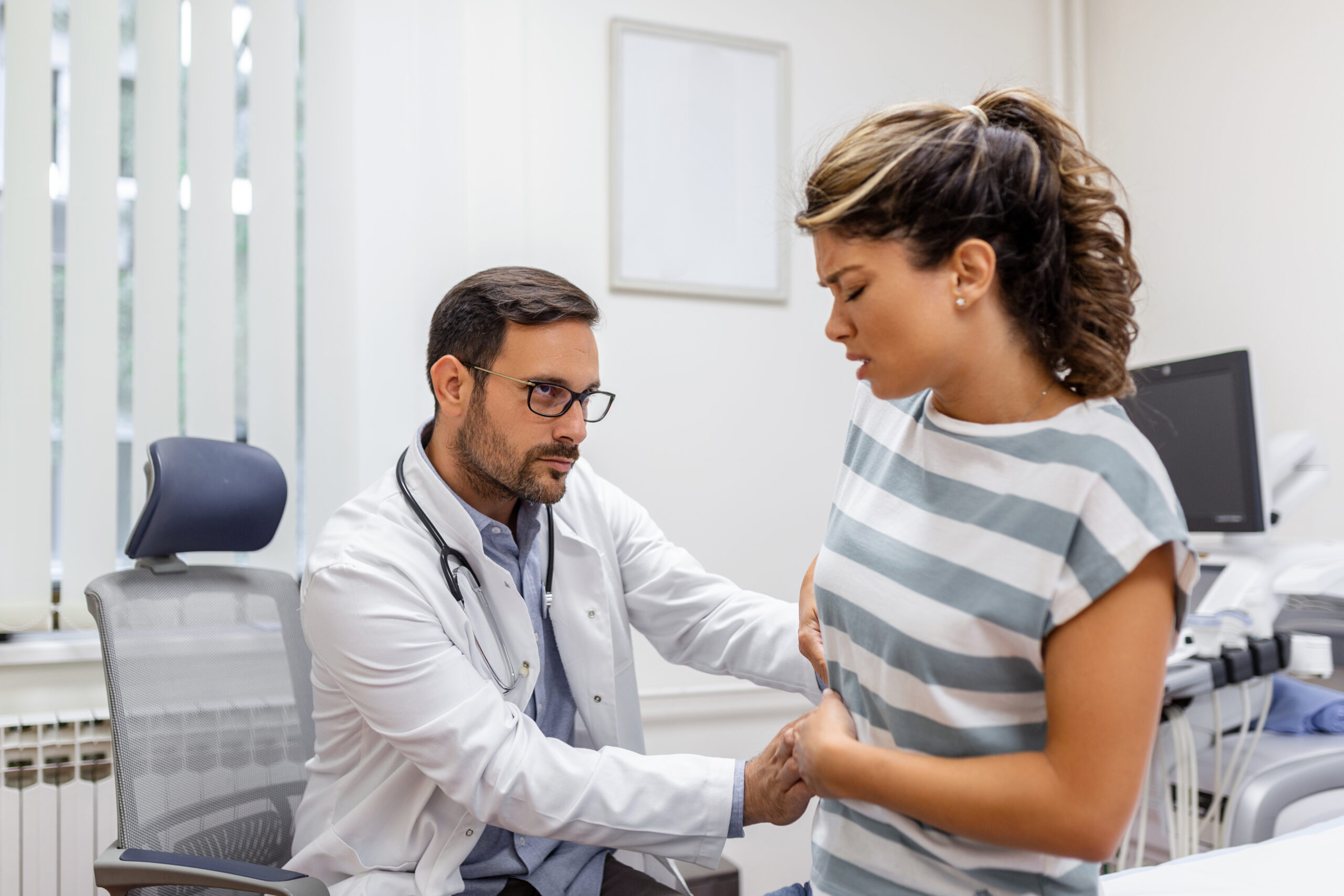
Another test that should be done regularly is the urine protein test. The presence of a certain protein called albumin in urine can signify the onset of kidney disease. When albumin and other proteins are consistently found in urine (proteinuria), it is a sign of kidney damage.
It's significant to check your glomerular filtration rate through a blood test. It can be determined by checking your creatinine level. If the test results are not in the normes, it's recommended to consult with a doctor. Remember not to interpret the results on your own – always ask a specialist to do it.
Table of Contents
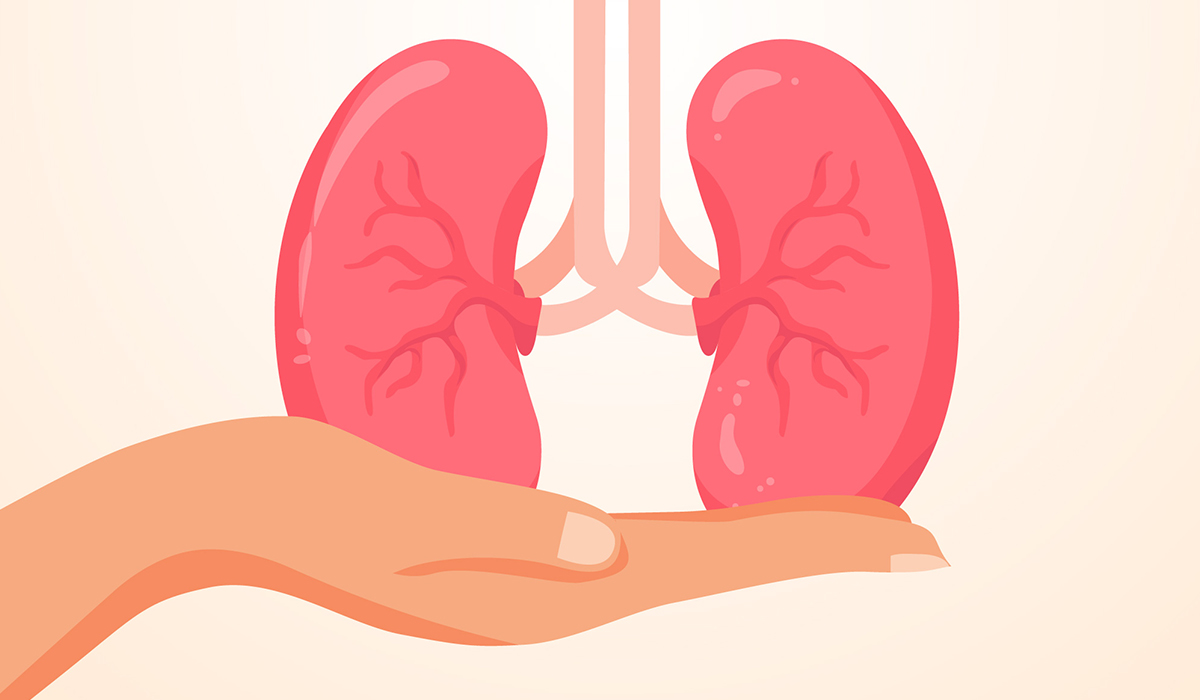
Kidneys are two bean-shaped organs that filter your blood from waste products. What are its other functions? How are they… read more »
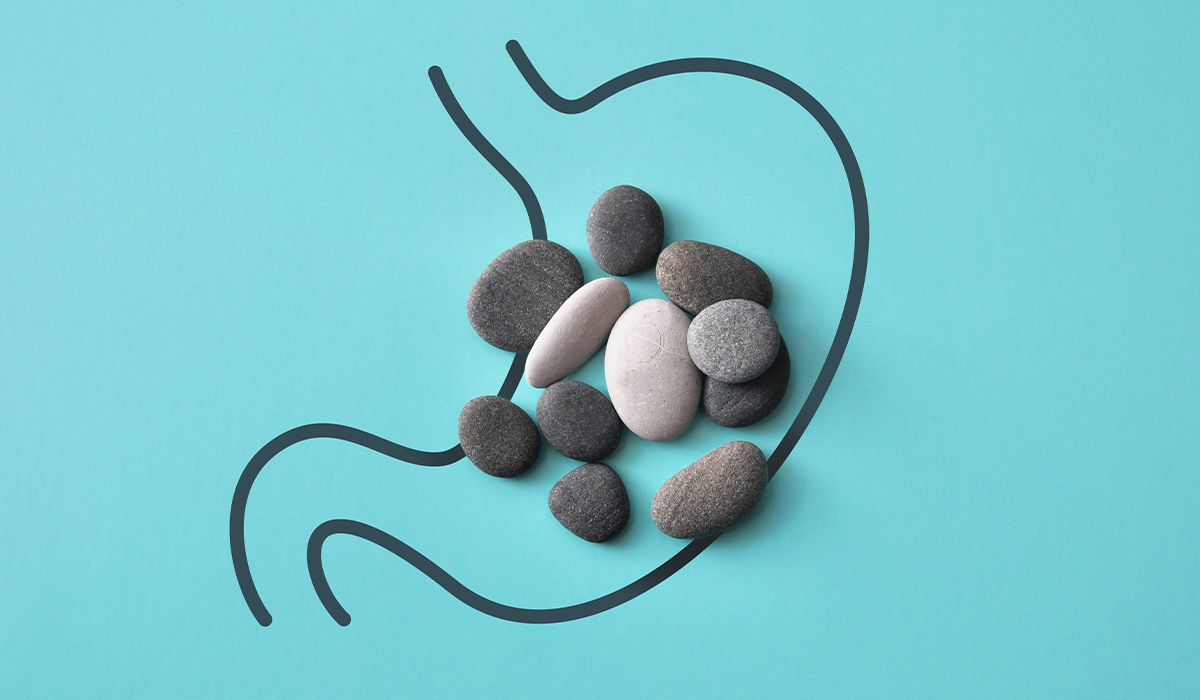
Kidney stones can form for a variety of reasons. Learn about factors that increase the risk of kidney stones. See… read more »
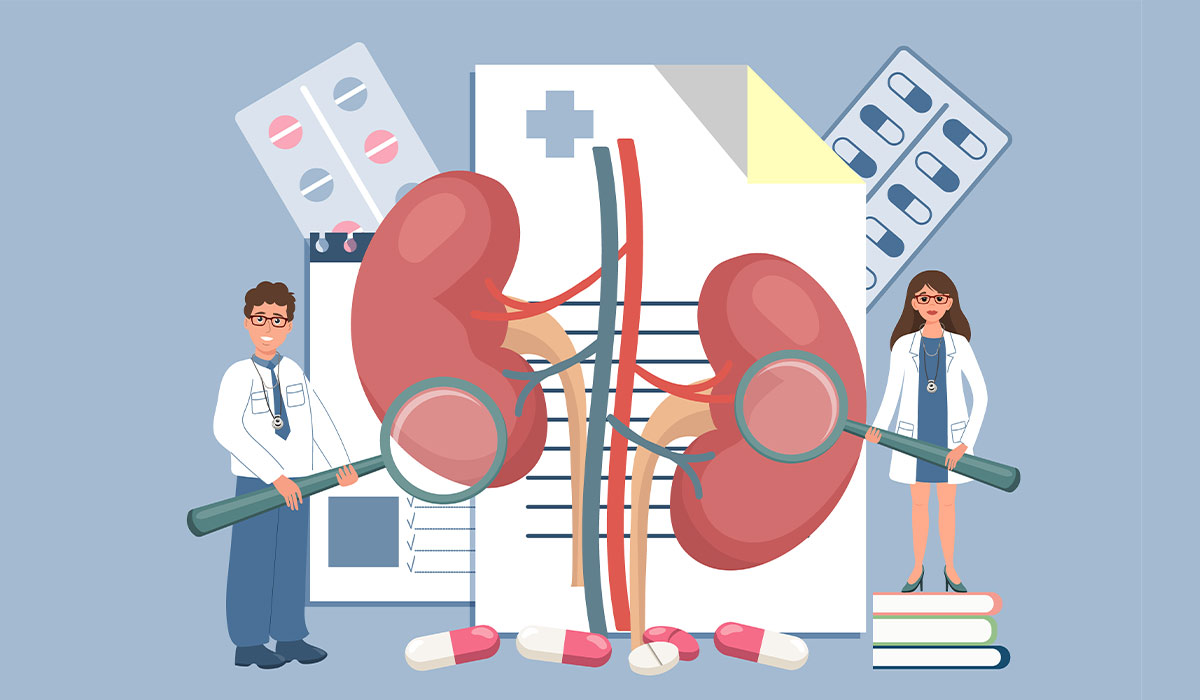
Hydronephrosis is a disease that can have serious complications. Find out how to recognise the condition so that appropriate treatment… read more »
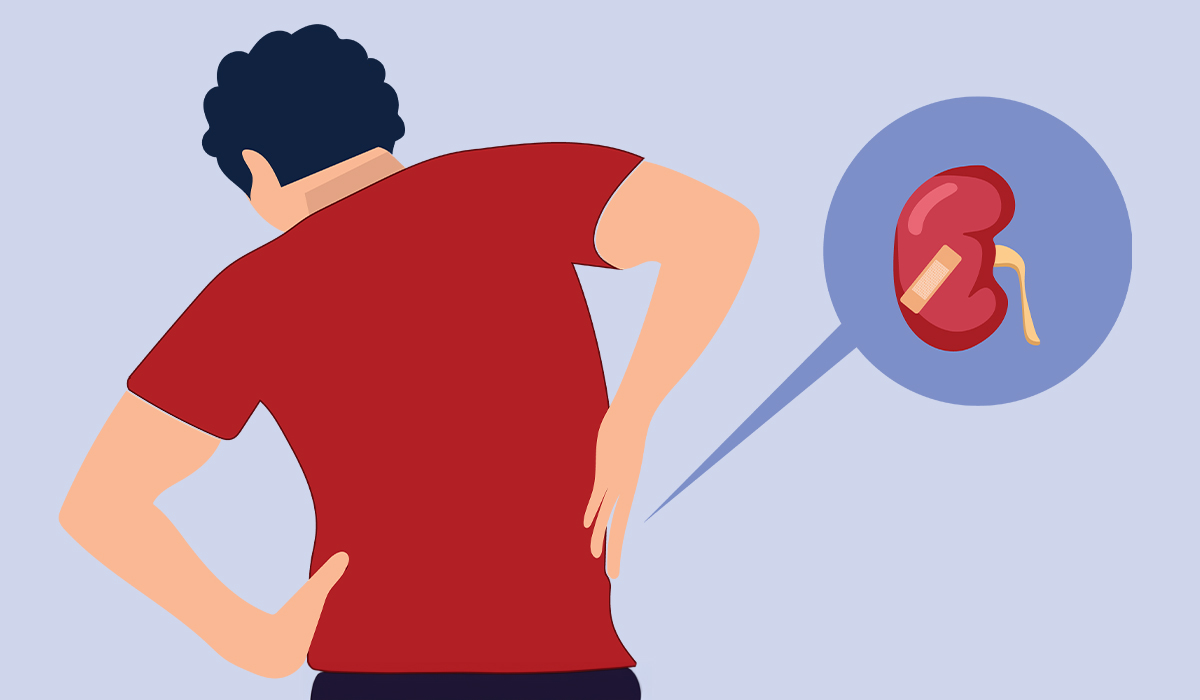
Kidney pain, also known as renal pain, begins from the pair of bean-shaped organs at the back of your stomach… read more »
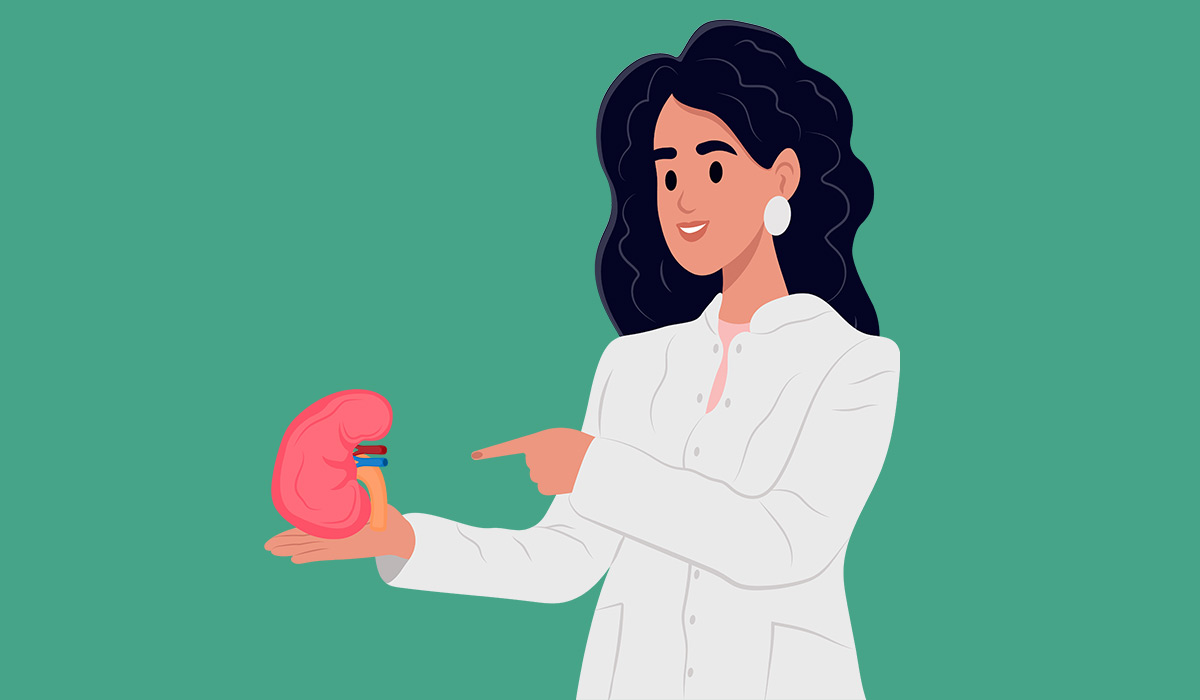
A nephrologist is a doctor who deals with the kidneys and urinary system. Many symptoms can indicate various diseases related… read more »
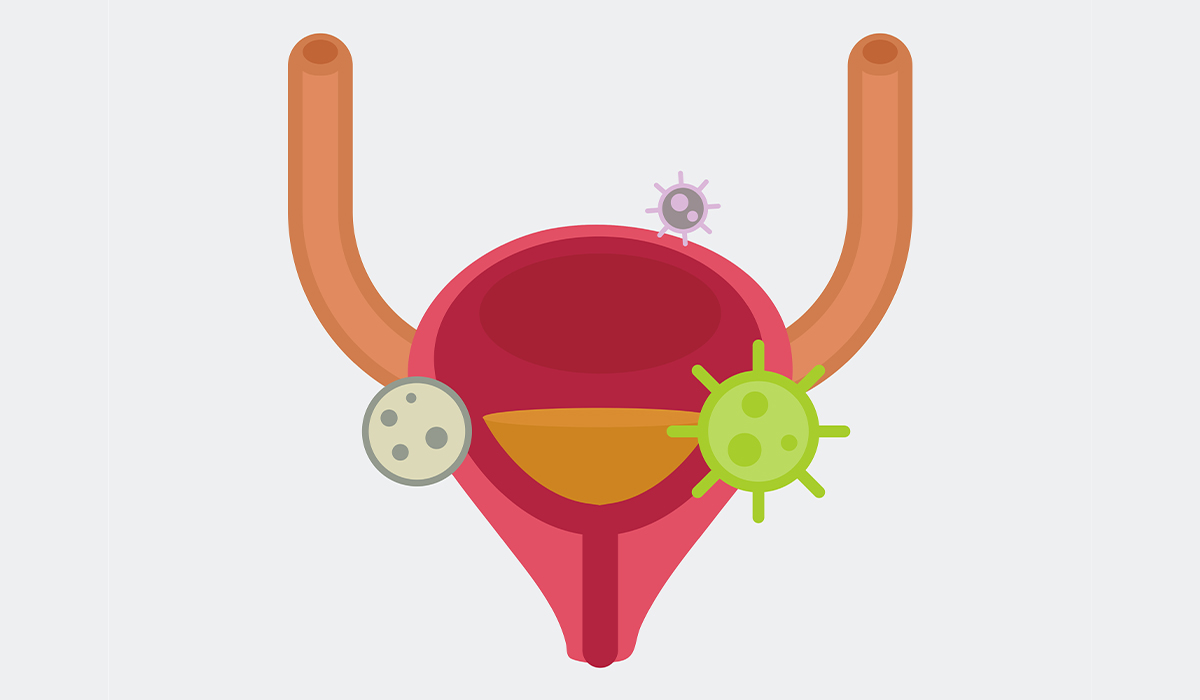
A bladder infection, also known as cystitis, is a type of urinary tract infection that occurs when bacteria enter and… read more »
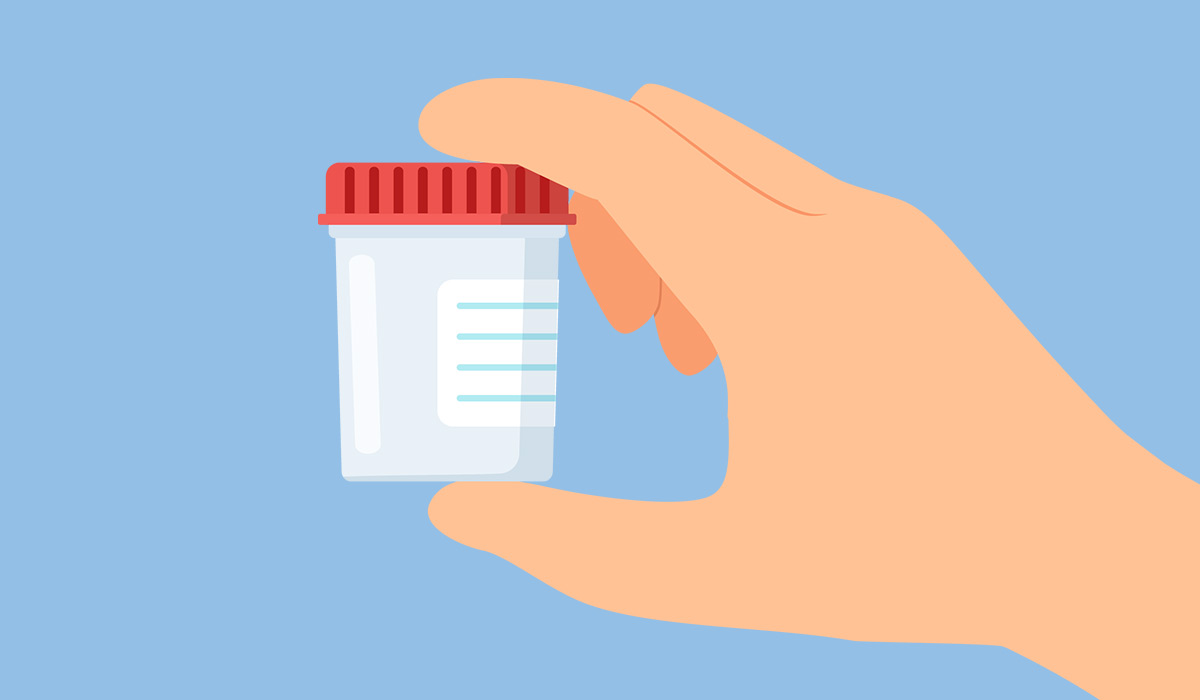
Haematuria is the word utilized to characterize urine blood content. In spite of the fact that it might show up… read more »
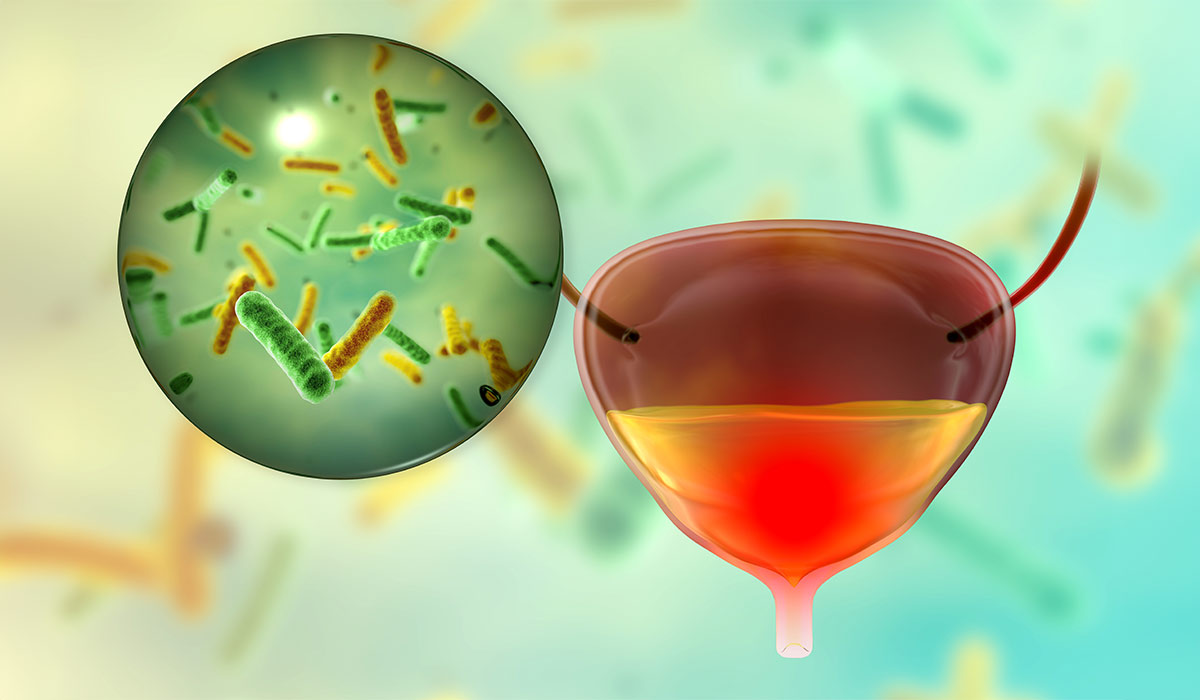
Cystitis is an infection of the bladder that develops when the bladder gets inflamed. Telltale signs of this medical condition… read more »
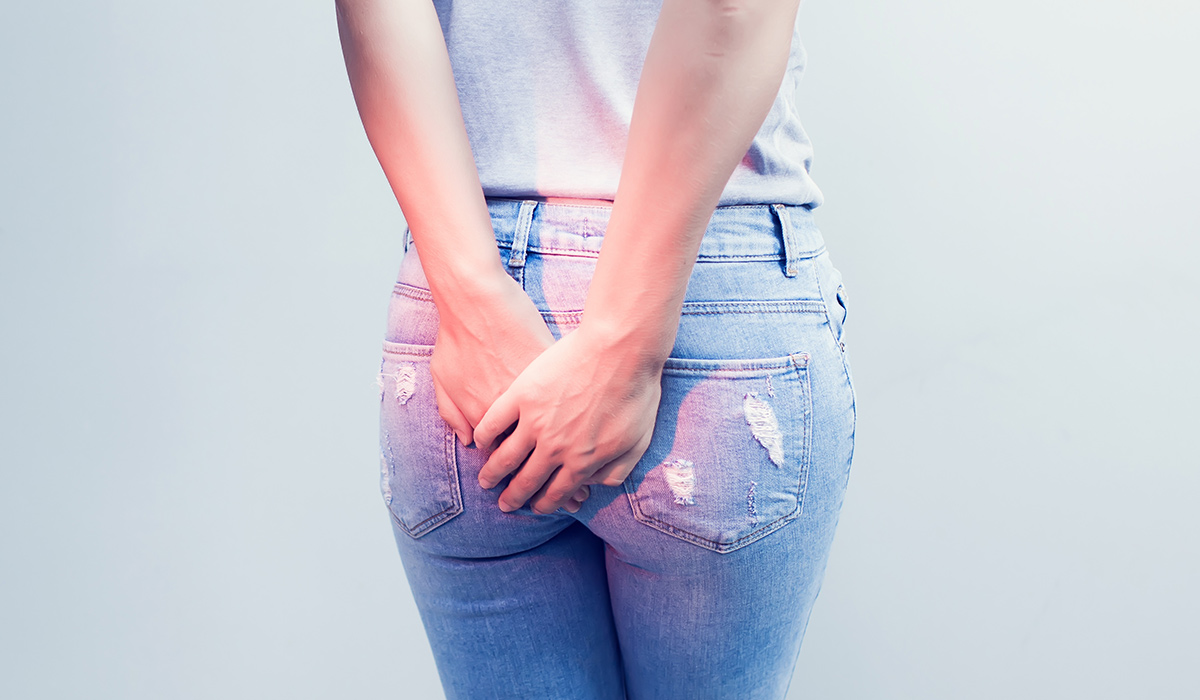
Hemorrhoids are swollen veins in the anal canal. They are accompanied by various symptoms – how to recognize them? What… read more »